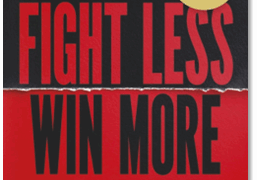
Apostles of Development uncovers the pivotal role six economists played in shaping global poverty solutions after WWII. Born as colonial subjects, they revolutionized development theory by prioritizing practical solutions over ideology. A compelling read on how Global South leaders redefined progress, challenging traditional views on development and inequality.
About The Book:
The battle against global poverty that began after World War II was a major undertaking engaging economists, engineers, and organizations. Featuring front and centre were six remarkable economists: Amartya Sen, Manmohan Singh, Mahbub ul Haq, Jagdish Bhagwati, Rehman Sobhan, and Lal Jayawardena, all born as colonial subjects in the British Empire and studied at Cambridge University. They represented a new figure on the world scene — the Third World development expert — and played a crucial role in global debates about poverty and development.
Apostles of Development examines their different economic doctrines and the ongoing debate surrounding economic theory in poor countries compared to rich ones. The lives of these apostles reveal how development did not begin with textbooks but with real-world attempts to solve very specific and pressing problems. Finally, the book emphasizes that development was a Global South project first and foremost, aiming to improve the conditions of the world’s poorest countries.
It challenges the conventional wisdom that sees development only as a tool of rich countries to dominate, or as proof of their humanitarian spirit. It argues that development succeeds not when it follows ideological prescriptions, but when it looks for what works. The fading of grand visions shaped by ideological concerns has been one of the lasting effects of the end of the Cold War. The book argues that the best way forward is determined modesty, focusing on practical matters, such as addressing gross inequality and insisting that development means more than just economic growth. Given the salience of questions of economic inequality and the constant visibility of the promises and problems of economic development in the world today, this is a timely and important read.

About The Author:
David C. Engerman is a scholar of twentieth-century international history and the Leitner International Interdisciplinary Professor of History and Global Affairs at Yale University. In addition to writing two books on the place of Russia and the USSR in American intellectual and political life, he writes widely on the topic of international development assistance, starting with a co-edited volume, Staging Growth: Modernization, Development and the Global Cold War (University of Massachusetts Press, 2003), and most recently a monograph, The Price of Aid: The Economic Cold War in India. This research was also the topic of his presidential address for the Society for Historians of American Foreign Relations in 2016. He is currently working on a one-volume history of international development, tentatively entitled International Development: A History in Eight Crises.
The official release for the book is in May 2025
[the_ad id=”55722″]


















